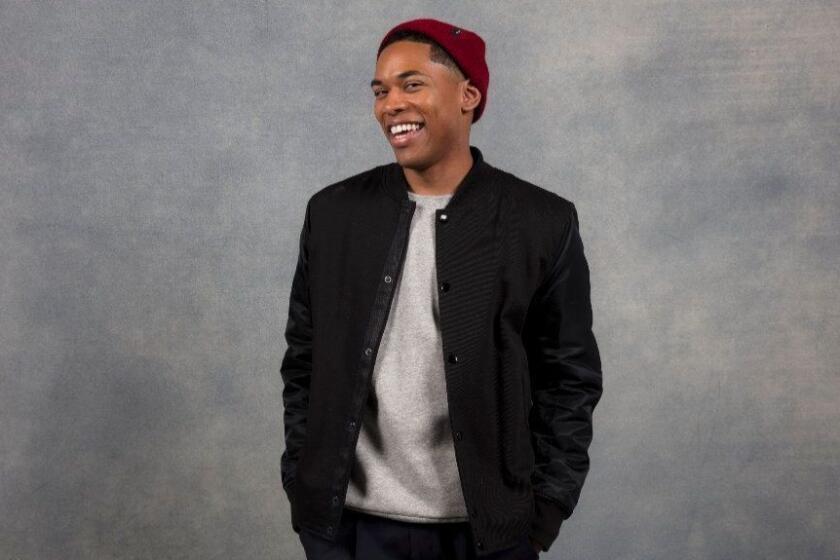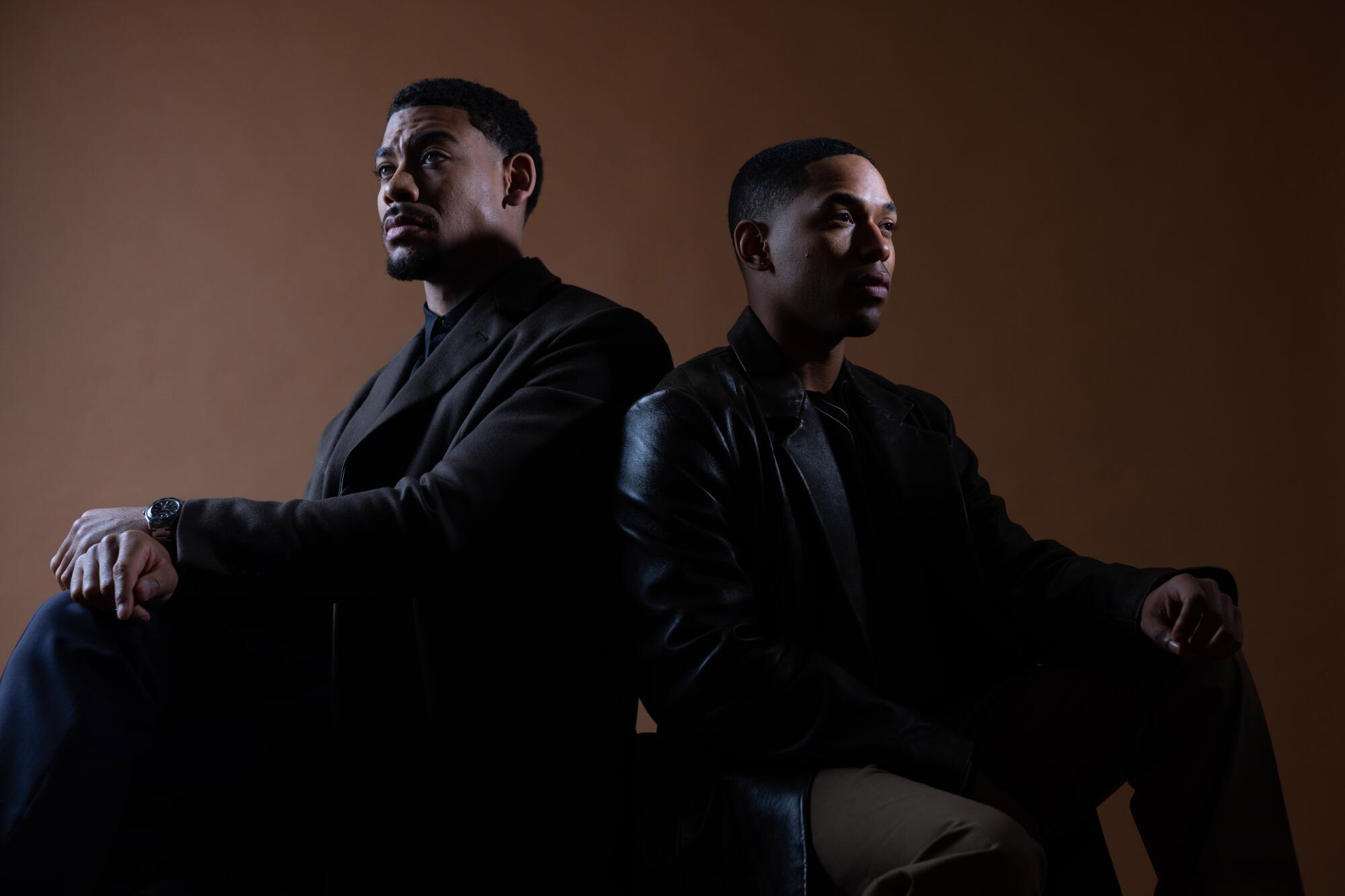
Kelvin Harrison Jr. and Aaron Pierre had the same reaction after learning that they had been hired to play the Rev. Martin Luther King Jr. and Malcolm X, respectively, in National Geographicâs âGenius: MLK/X.â
Terror.
Not only did they both initially feel overwhelmed by the daunting responsibility of portraying the iconic civil rights leaders but they also felt their performances would likely be compared to those of others. Denzel Washington portrayed Malcolm X in the eponymous 1992 film that earned him an Oscar nomination, Samuel L. Jackson starred as King in Katori Hallâs Broadway production of âThe Mountaintopâ and James Earl Jones also portrayed King in the miniseries âFreedom to Speak.â
But with the support of friends and producers, Harrison and Pierre eventually overcame their doubts, delivering distinctive and bold portraits of the two men.
âMLK/Xâ is the fourth season of âGenius,â a biographical anthology series that has focused on Albert Einstein, Pablo Picasso and Aretha Franklin in previous installments. The final two episodes of the eight-part season, which premiered Feb. 1, run Thursday on National Geographic and stream the following day on Hulu and Disney+.
After scoring raves for âThe Color Purpleâ and âHarriet,â Erivo takes on her most challenging assignment to date: playing Aretha Franklin in NatGeoâs âGenius.â
Co-starring as Kingâs wife, Coretta Scott King, is Weruche Opia (HBOâs âI May Destroy Youâ), and Jayme Lawson (âTillâ) plays Betty Shabazz, the wife of Malcolm X. The executive producing team includes Gina Prince-Bythewood, Reggie Rock Bythewood, Brian Grazer and Ron Howard.
Harrison (âChevalierâ) and Pierre (âFoeâ) knew each other â they are both involved in the upcoming âThe Lion Kingâ prequel, âThe Lion King: Mufasa.â Pierre plays the title character, while Harrison plays the villain Scar.
Even though they share only a few scenes in âGenius,â they clearly became bonded during the project and expressed a palpable fondness for each other during a recent joint interview at a Pasadena hotel. Pierre occasionally patted Harrisonâs knee during the discussion, calling him âmy best friend.â This conversation has been edited for length and clarity.
1
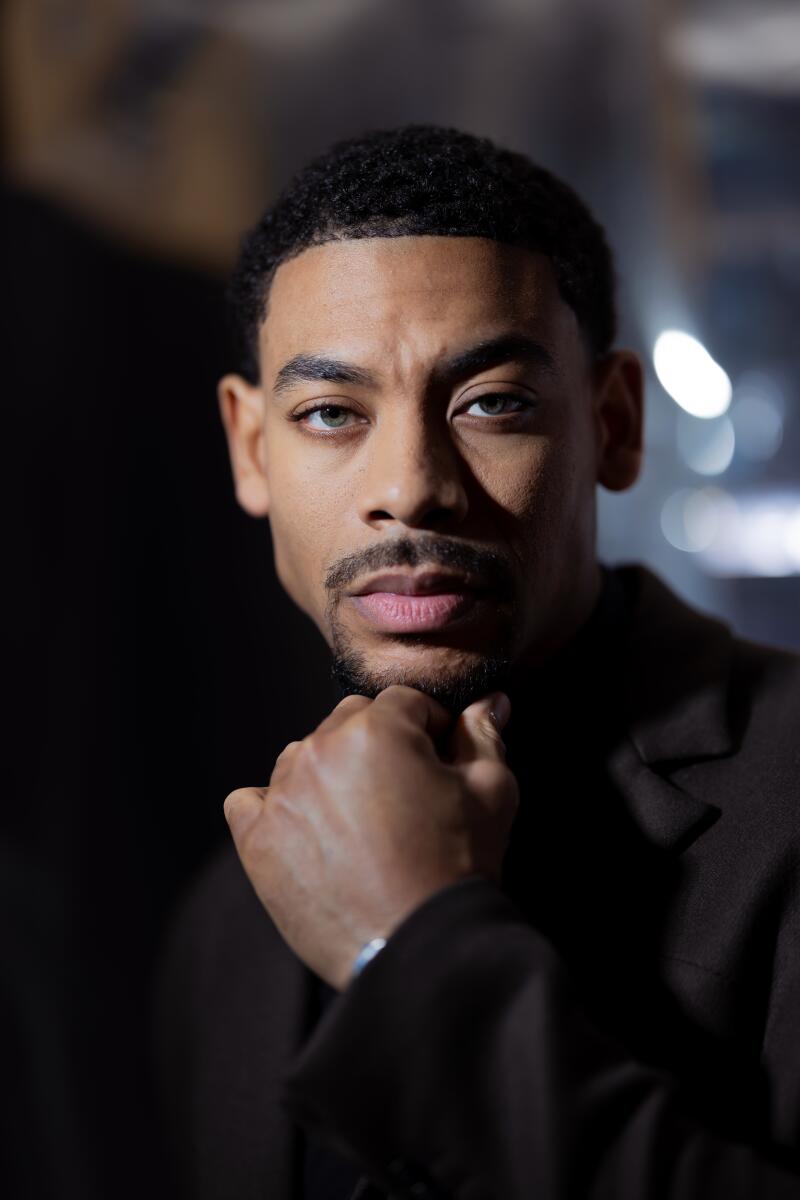
2
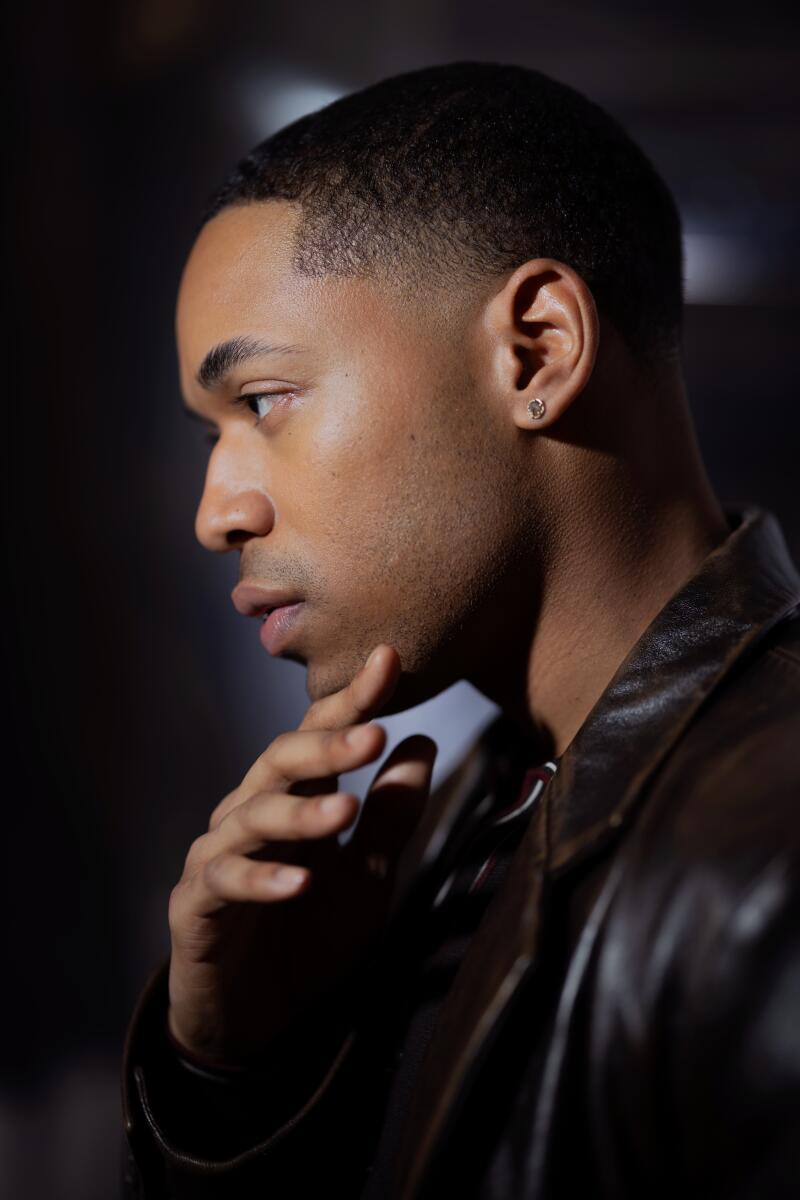
1. Aaron Pierre plays Malcolm X. 2. Kelvin Harrison Jr. plays the Rev. Martin Luther King Jr. (Christina House / Los Angeles Times)
It must have been good news to be cast in this series, but Iâm sure it was also scary.
Harrison: Initially, I was terrified. I didnât know whether it was appropriate for me to be cast. I was 27, 28 years old, had just started acting and hadnât lived that much life. I feel I have gotten the benefit of Dr. Kingâs and Malcolmâs work, but what was it that I could do to bring a further understanding of it? Then I thought, âI just have to get over myself.â The producers told me Dr. King was young when he began his journey. There was a lot of responsibility bestowed on him. Plus, he had a wife and kid. I felt a little naive, but that also fits in with the story weâre telling. Itâs about taking on that naivety and not mistaking it for ignorance or a lack of intelligence. Itâs also about not losing that sense of hope that we have in our country and our identities in who we are, putting one foot in front of the other and walking in faith. Then I got excited thinking, âI canât believe I get to go on this journey.â
Pierre: I share that sentiment. Iâm the same age as Kelvin. When I got the call, I questioned whether I had the capacity, the endurance, the durability, the emotional intelligence, the life experience. I didnât say yes immediately because I needed to sit with that and understand what that feeling was and how I was going to channel those feelings into something that would propel me forward as opposed to prohibiting me. Once I thought I could do that, largely because of the support network about me personally and creatively, I knew I could begin embarking on the journey. You find joy in it, which is so important because what these men did needs to be celebrated and championed.
1
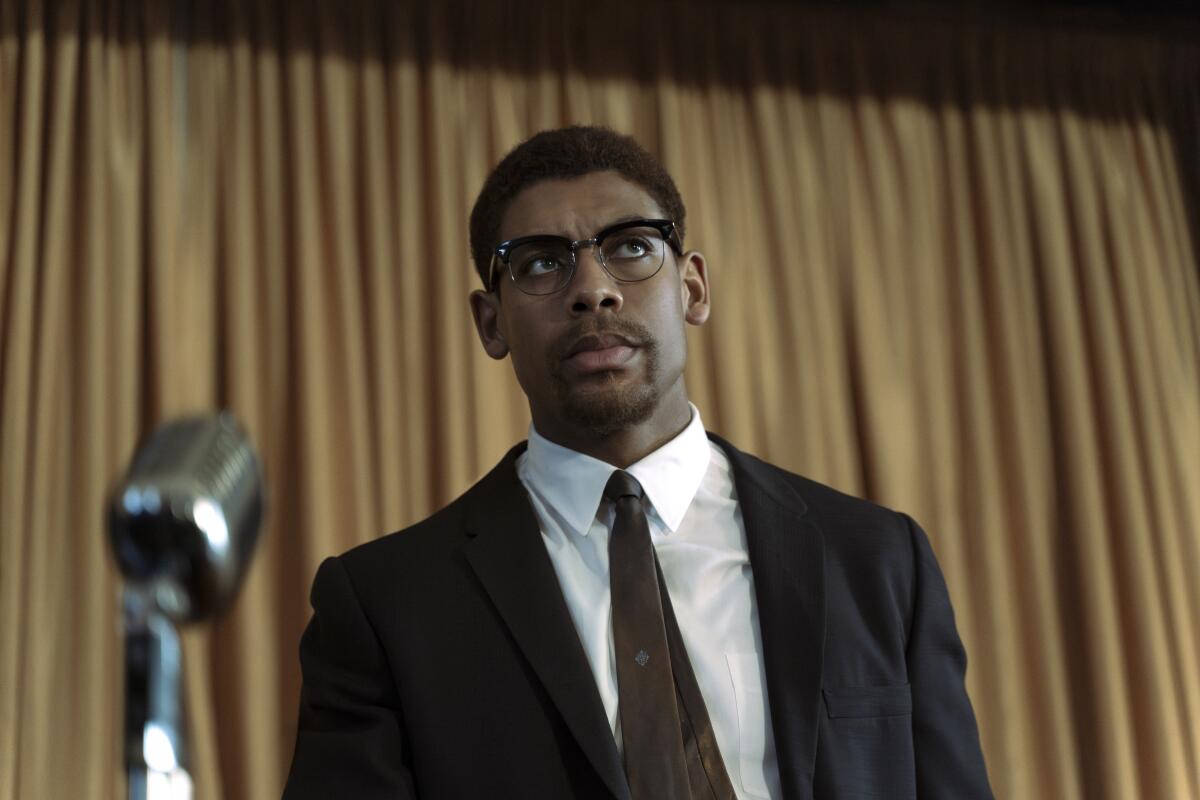
2
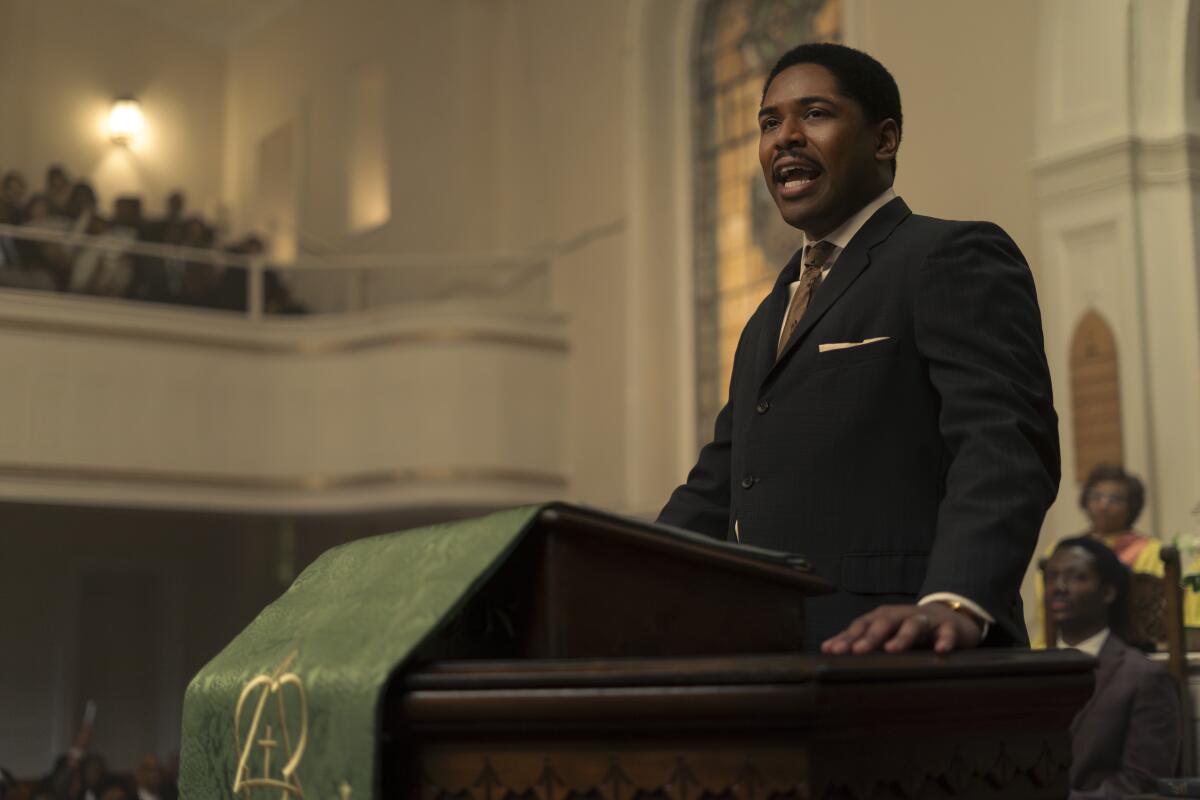
1. Aaron Pierre as Malcolm X in âGenius: MLK/X.â (Richard DuCree / National Geographic) 2. Kelvin Harrison Jr. as the Rev. Martin Luther King Jr. (Richard DuCree / National Geographic)
When Kelvin Harrison Jr. was younger, he thought he wanted to follow in the footsteps of his musician parents â a vocalist mother whoâs also a ballerina and a classically trained jazz saxophonist father.
What was the research process like?
Pierre: We both watched and absorbed a tremendous amount of historical footage. I went to âThe Autobiography of Malcolm X,â which is something I think I will revisit more than once in my lifetime. Then thereâs âThe Sword and the Shield: The Revolutionary Lives of Martin Luther King Jr. and Malcolm X,â which I trusted implicitly with its historical knowledge and insight. I visited Harlem, which fueled me in a very beautiful way.
Harrison: My initial instinct was to watch every movie about Dr. King, but my young actor brain and every actor I respected said, âStay away from doing that.â So I refused that impulse. Then I had to figure out what those actors did. What I found out is that they brought a little bit of themselves to the role. I had to do an investigation of myself to figure out how to bring my humanity.
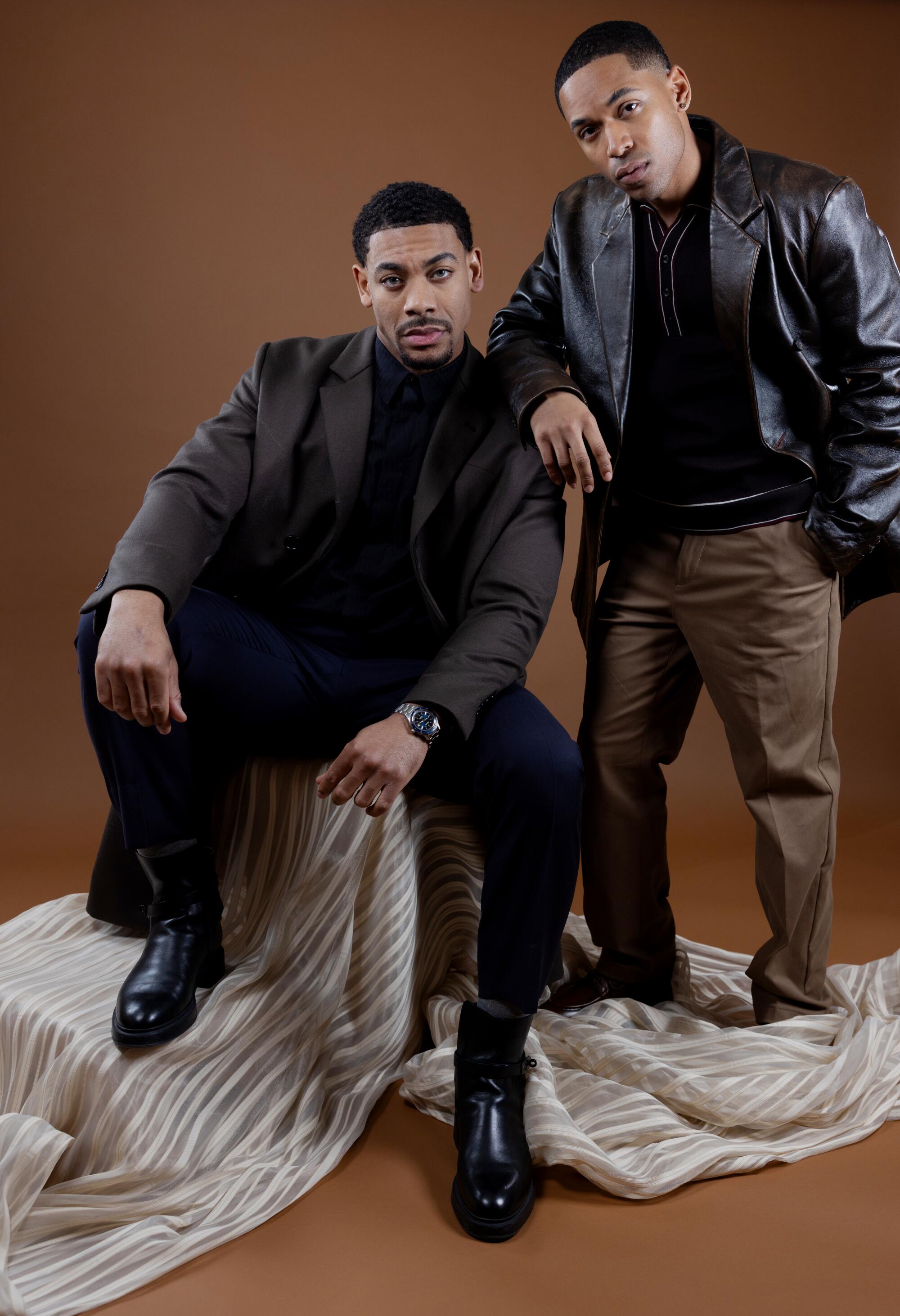
Aaron, were you intimidated by Denzel Washingtonâs acclaimed performance as Malcolm X in Spike Leeâs film?
Pierre: Denzel is a hero of mine. I have the utmost respect for him, not only artistically but personally. I had to manage that a hero of mine had played a hero of mine. I dealt with that by accepting that truth and then setting it free. Once I did that, I was able to permit myself to be liberated and safe enough to explore my own portrayal and bring my own life experience to Malcolm.
Kelvin, you had a similar situation. The actors who have played King include Jeffrey Wright and James Earl Jones.
Harrison: Itâs kind of none of my business at a certain point. Dr. King was called to do something. If the people behind this project are calling me to do this, they see something in me I canât see. And itâs arrogant for me to sit there and debate about it.
Pierre: At a certain point, we made peace with that fact, realizing all we can do is do our best. We use everything in our power to serve these tremendous men and their stories and legacies. Beyond that point, we have to set it free and let it be. Itâs the only way to protect your well-being.
For âThe Underground Railroad,â about the harrowing escape from slavery, director Barry Jenkins took a novel step: hiring a mental health counselor.
King and Malcolm Xâs stories are told on parallel tracks. You share only a few scenes, but itâs clear you felt connected to each other.
Pierre: Absolutely. Aside from the professional work we share, this is one of my dearest friends. Thereâs a true sense of support and seeing one another through each others experience. We have so many parallels and similarities of our respective lives. We didnât see each other a lot on set, but when we did, we checked in with each other. We understood that what we were embarking on was not easy. It required vulnerability.
Harrison: One of the times we did connect was when he came over to my little apartment in L.A. He brought doughnuts and I cooked. We talked about everything â how our journeys were going so far. Then we watched âDevil in a Blue Dressâ with Denzel and Don Cheadle. We filled our cups with these beautiful portrayals. It was inspiration. Itâs so easy to want to retreat when youâre on a journey like this. You get overwhelmed. You want to say, âThis is too hard, Iâm backing out.â So itâs important to have those moments to reconnect and say, âWeâre in this together.â
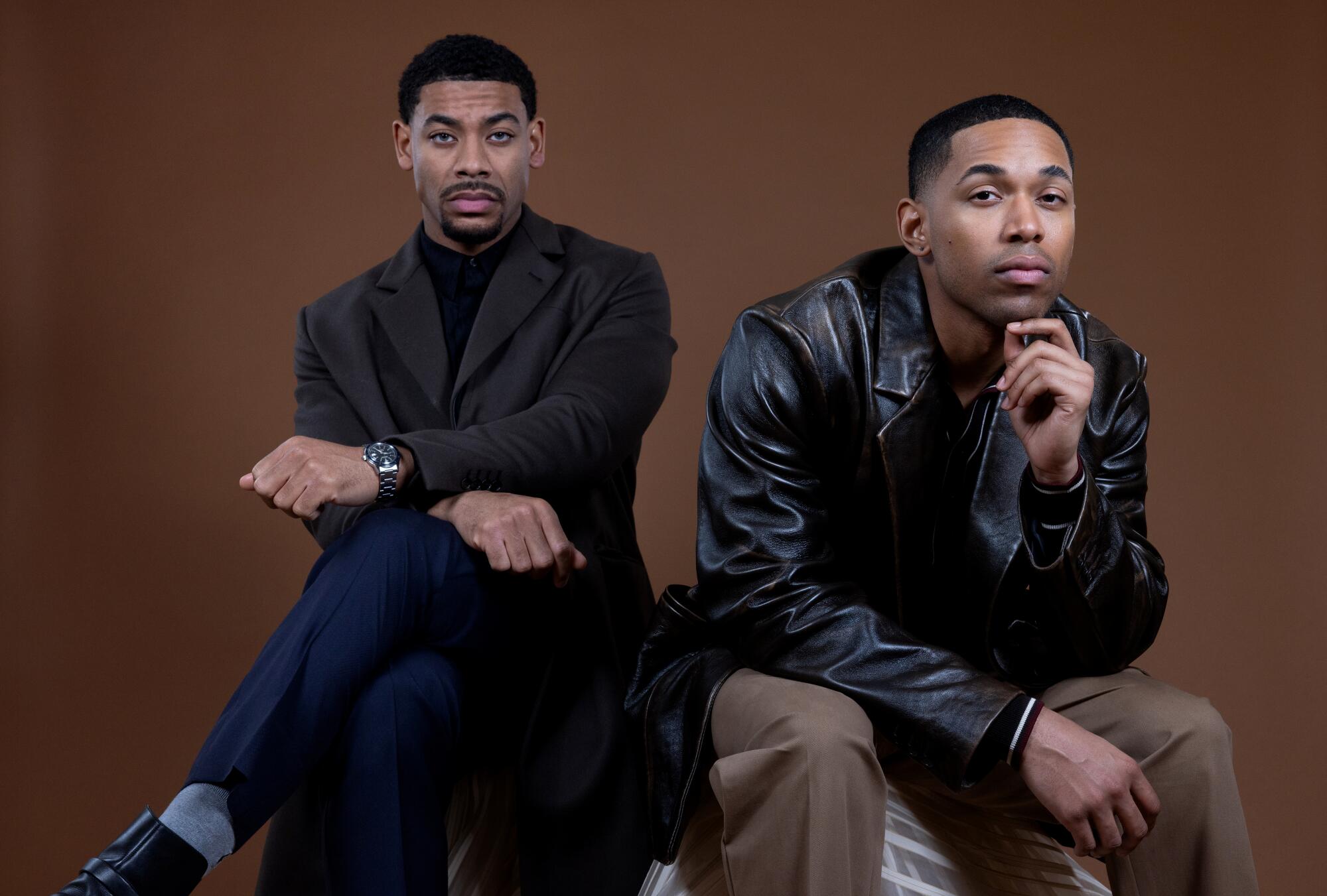
What was the most challenging day for you both?
Pierre: If weâre being honest, every day was challenging. This isnât an engagement that ended with the final scene of the day. This demanded that we be engaged every day for the five or six months we did this. Every day we felt the weight of wearing those jackets.
Were you ever able to relax? What did you do to relieve stress?
Pierre: Iâm really very grateful to Kelvin and Weruche. I have a tendency, no matter what the project is, but particularly with a project of this magnitude, to completely immerse myself for the duration. But they really looked after me. I would just be sitting in my trailer, in the suit with the glasses on, waiting for the next scene. Then one or both of them would drop by and say, âI brought you some shrimp.â They would bring joy. They contributed to the health of my personal well-being.
Harrison: I read somewhere that Martinâs favorite show was âStar Trek,â and he would watch that to decompress. So I thought, âIâve got to find my own show.â So I got addicted to âBig Brother.â That was my âStar Trek.â I know that show is ridiculous, but I refuse to give it that label because itâs so good. It was like, âTheyâre stuck in this house. On the set, Iâm stuck in this universe.â I related to them, and it would make me laugh and have fun.
What do you think audiences will learn from âGeniusâ?
Pierre: I hope it will dispel the myths and reveal the truth about the experiences of these men. There is a considerable amount of misinformation about Malcolm X. They need to gain the understanding that he operated from a place of love and light. Some might say he was advocating for physical engagement. I disagree. I think he was advocating for safeguarding and preserving the safety and livelihoods of your loved ones, your community and for those who look like you.
Harrison: Our job as storytellers is to inspire. With this story, I see it as a mirror to our country and the cyclical nature of it.
More to Read
The complete guide to home viewing
Get Screen Gab for everything about the TV shows and streaming movies everyoneâs talking about.
You may occasionally receive promotional content from the Los Angeles Times.
